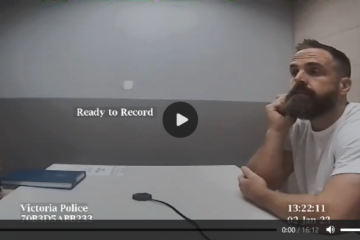i don’t want to say much on this subject, generally i think it is best for me to keep my mouth shut — i just want to offer my opinion on what it would really mean for ‘australians’ to apologise to indigenous ‘australians’ (i don’t see opinions similar to mine expressed anywhere, so i feel compelled to give these opinions mass-exposure by posting them on my blog, which can average up to 30 visits a month).
the history of australia is a textbook example of the sort of dispossession, slaughter, violent oppression, exploitation and resource extraction (colonialism) that has created the world of today, with all it’s horrible systemic inequality/injustice and generational trauma.
there is absolutely no denying that an apology is necessary, and that this apology should mean something: first of all “sorry means you don’t do it again” and secondly, it will take generations of non-interventionist and self-determined assistance to preserve what is left of indigenous culture, heal the damage and build mutual respect.
where any governmental apology or positive political gesture towards indigenous australians is concerned, there is always important debate around the issue of these gestures being meaningless (even adding further insult) unless they are followed by meaningful action, actions such as granting freehold title to all indigenous populations that inhabit ‘crown’ land, actions such as allowing resources (money) for the devastated indigenous communities to rebuild in the way they desire.
i totally agree that a meaningful apology to a wronged people has to be followed by positive actions, attempts to remedy the present situation, which is the direct result of past wrongs, as much as possible (of course that isn’t a simple, short-term or straight-forward process).
the only thing is, i think the logic of an apology requires us to go a lot further than that — if an apology to a wronged people is truly meant, then the apology (and the necessarily implied positive actions to right said wrongs) should logically extend to all people in the world that have been similarly wronged.
(apology is lettting me down as a word because of it’s implication of personal responsibility – i guess what i want is a word that means empathic recognition of suffering and a commitment to action that can ease that suffering regardless of level of ‘personal’ responsibility. in australia’s case of apologising to indigenous australians, ‘australia’, as a ‘nation’, is responsible, so apology is a fair enough word, even though the personal responsibility of every non-indigenous australian, such as an asylum seeker recently granted citizenship, is questionable — but when it comes to global problems that have accumulated as a result of innumerable actors over many centuries, apology seems a somewhat unsuitable word because of the diffusion of guilt across the globe and across centuries — but in this bit of writing if you take apology to mean empathic recognition of suffering and a commitment to action that can ease that suffering, regardless of level of personal responsibility, then everything will be peachy)
for australia to truly apologise to indigenous australia, shouldn’t we similarly apologise for the wrongs that have been done to populations the world over? shouldn’t we not only seek to relieve indigenous australia of the degradation they have suffered and are held in, but seek to relieve populations across the world from the similar degradation that has been visited on them through the collective actions of self-interested, imperialist nations (those countries of the ‘1st world’)?
the answer for me is undeniably yes, an apology to indigenous australia involves much more than resolving to release indigenous australia from the systemic oppression they have endured since invasion day and allowing indigenous australians their rightful position of pride in this, their land.
a true apology to indigenous australians involves a shift in the way we think about nations and a resolution to work for change in the geopolitical agenda (including the economic redistribution) necessary to allow people all over the world to live in the full humanity they deserve.
even if we are not personally responsible for dehumanising inequality, we should take responsibility: we now have an unjust system — the only decent thing those who have been born on top of this system can do is recognise the system is wrong, empathise with those who suffer and work for a fairer world, a world shared amongst equals.
to summarise, as concluding paragraphs are supposed to do, an apology to indigenous australia demands commitment to global progress so dramatic that it could properly be described as revolutionary, true global justice and true global democracy — anything less than that is a disgraceful failure to grasp the fundamental wrongness of what has been done to indigenous australia.


